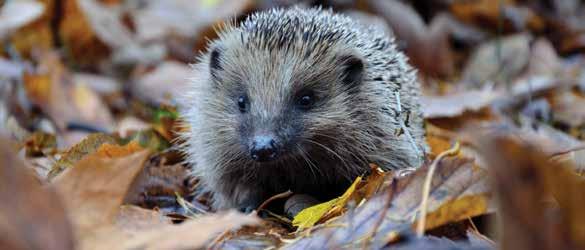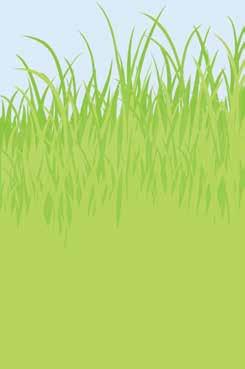
3 minute read
Midnight Visitors
from Cambs Sept 2020
by Villager Mag

I have yet to name my midnight visitor, but I feel very fortunate to have him. Or her. Most nights I see him scuttling across the decking, as though he were on a secret mission. My sweet little hedgehog is of course in search of insects and grubs. But in the stillness of the night I cannot help but create this alter ego. Where has he come from? Why has he chosen my garden? How long will he stay? I did some research in order to find out.
Advertisement
Facts About Hedgehogs
Between April and November, hedgehogs visit peoples gardens in search of food, as they need to accumulate fat in Autumn, ready for their hibernation in early winter. They can travel up to a staggering 3 miles in one evening as they forage for things like worms, berries, insects, caterpillars, slugs and beetles. Even though hedgehogs are nocturnal creatures, they have been known to venture out during the day – especially after it has rained. Hedgehogs are solitary creatures and will commence this lifestyle having only spent between 4 and 7 weeks with their mother. Interestingly, the hedgehog has not always been called a hedgehog. They used to be called urchins, which then led to the naming of sea urchins. Baby hedgehogs are called hoglets.
How To Care For Hedgehogs
Most of us love to have tidy gardens, but this isn’t always an ideal environment for a hedgehog. They enjoy creating homes in piles of leaves and compost heaps. They are very resourceful creatures. For this reason it is important to check any wood piles you have been building. Similarly, when using forks,


spades, mowers and strimmers take care that you have checked the specific areas of the garden, as hedgehog maybe taking refuge or hibernating in them. You could make or buy a hedgehog house and feeding station. Ponds are great ways of attracting wildlife into your garden. Hedgehogs will drink from them, but have been known to fall in. Although they can swim, you must make sure there is an easy way out for the hedgehogs so they don’t get stuck and drown. A gently sloping edge or ramp perhaps, with some pebbles and rocks.
Do’s And Don’ts
Don’t be tempted to leave a saucer of milk outside for your little prickly friend. Hedgehogs are lactose intolerant and would much prefer water. Do leave out dog/cat food if you wish to supplement the hedgehogs diet. Don’t use slug pellets in the garden as they will harm or kill hedgehogs. Do ensure that hedgehogs can get in and out of your garden. A square hole that is anything between 10-15cm is an adequate size. If you can’t create this in your fencing, a tunnel could be dug going under it. Get together with your neighbours and create a hedgehog highway!
If you need to contact our Branch (North Bedfordshire) for any reason we can be reached by the details below, or for an animal welfare issue or emergency, contact 0300 1234 999. Lines are open 7 days a week 24/7. Email: info@rspcabedsnorth.org.uk Tel: 01234 266965 / 01234 930304
S B T U R F


• Turf supplied and laid • All overgrown gardens rotivated • Cleared, levelled and laid with cultivated lawn turf • Grass seeding • Block paving and patio service
All work carried out by experienced staff
Recommendations and portfolios available Free Estimates

Tel: 01487 822993 Mob: 07966 523239











